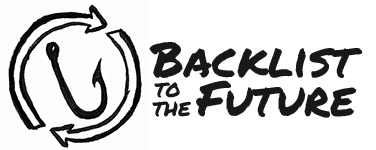Lets starts with a bit of honesty; I don’t usually read poetry. In fact, I’ll go ahead and admit I don’t care for it. I’m a fan of books beginning to end. Intro, climax, resolution, ending. Character development and intricately described settings are what make me flip from page to page, and I have never found poems to leave me feeling satisfied. I respect it as an art form, and a beautiful way for the poet to express themselves, but for some reason it’s just not for me. History on the other hand, now that’s something I get behind. I am a big time history buff, and love to devour knowledge about how the past has shaped the world we live in today. I am also a west coast kid, fittingly born in the shadow of St. Louis’s Gateway Arch, the literal gateway to the west. Raised in the Arizona desert and self-implanted into the heart of the Pacific Northwest, the west coast is, and always has been, home. It’s unlikely that will ever change.
All things considered, when I picked up a copy of Killing George Washington I really had no idea what to anticipate. Was I about to read a collection of poems that I would have to struggle to take meaning out of, wondering all the time if I was interpreting them totally wrong? Or was I about to delve into yet another historical epic of the kind I love so dearly? A collection of poems geared towards historical storytelling was something I had never come across before, and I wasn’t sure if I should settle in for an enjoyable read right up my alley, or run for the hills as if being chased by the ambiguous ghost of Robert Frost. To my relief and joy, I was very pleasantly surprised.
The short introductory biographies on each of the five showcased characters serves to provide wonderfully developed backdrops for the poems. You learn who these people were and how, in one way or another, they helped shape the west as we live in it today. Some are seen as heroes, others hardly remembered at all, but Paris is so eloquently able to show that, like all of us, the characters were people with flaws and histories mixed with both the good and the bad. To be sure, the text does not drone on like so many history books we were force fed through school, the true historical stories are broken up by countless poems of beauty and brutality, and here is where Paris takes her artistic license. Was the Indian fighter Lewis Wetzel an American hero and champion of expansion, or a prejudiced murderer who under modern day laws would be executed for genocide? Paris’ poetry begs the question that perhaps he can be both. Does the famous story of Lewis and Clark and The Oregon Trail paint a fair picture of the two hallowed adventurers, or does the story of York prove that the path to the west was paved with blood, sweat, and tears? Through artistic contemplation, you will be forced to draw your own conclusion.
I will not pretend that reading this book has opened my heart to the previously unseen beauties of poetry. The truth is, poetry is still very near the bottom of what I’ll choose to read. However, Killing George Washington has opened my eyes to the potential poetry has, and shown me that I am only cheating myself by writing poems off at a glance just because I probably will not like them. Because after all, the truth is often buried under layers of what we think we know.

